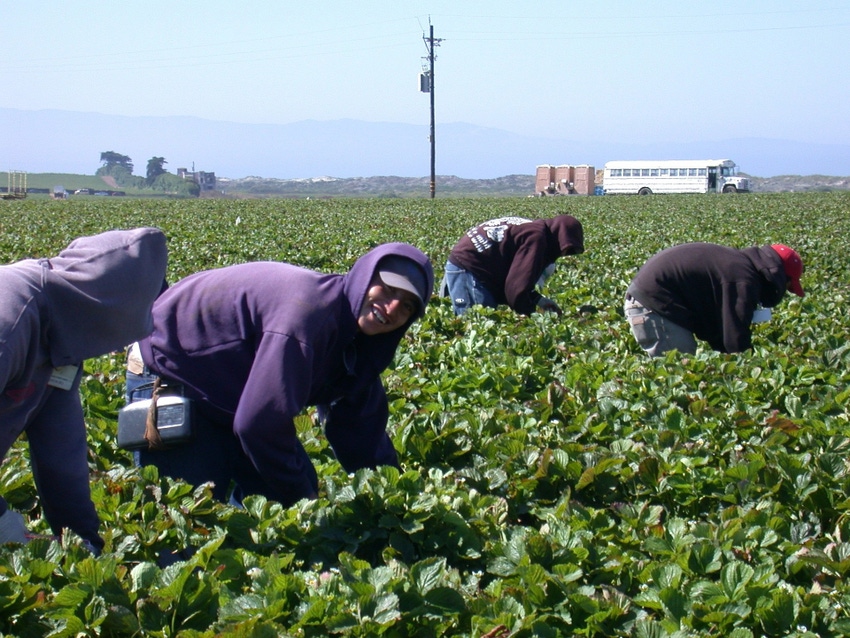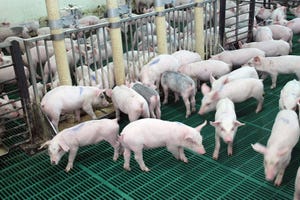Legislative Watch: Bill seeks end to line speed waivers; Coalition says fully fund trade promotion programs; Tai confirmed U.S. Trade Representative.

The House of Representatives on a bipartisan vote passed the "Workforce Modernizatoin Act" to address the ongoing problem of labor shortages in agriculture. The legislation provides a path to citizenship for undocumented farm workers and expands the H-2A visa agricultural guestworker program.
The bill would:
Establish a program for agricultural workers in the U.S. to earn legal status through continued agricultural employment.
Reform the H-2A program to provide more flexibility for employees.
Establish mandatory nationwide E-Verify system for all agricultural employment.
The bill was introduced by Representatives Zoe Lofgrin, D-Calif., and Dan Newhouse, R-Wash. Last Congress, over 300 national and state agricultural organizations supported the legislation.
Senators Mike Bennet, D-Colo., and Mike Crapo, R-Idaho, plan to introduce the legislation in the Senate.
End line speed waivers
The “Safe Line Speeds During COVID-19 Act” would suspend current and prohibit future USDA waivers that allow increased production line speeds at meatpacking plants. The goal of the legislation, introduced by Representatives Rosa DeLauro, D-Conn., and Bennie Thompson, D-Miss., and Senator Cory Booker, D-N.J., is to protect workers, consumers, and animal safety.
DeLauro said: “The ongoing COVID-19 outbreaks at meat plants over the last year have raised serious questions about the safety conditions inside these plants. Even before the COVID-19 pandemic, these workers experienced injuries at a higher rate than comparable occupations. And now, faster line speeds make it impossible for workers to practice social distancing and comply with safety guidelines.”
During the COVID-19 public health emergency declaration, the legislation would:
Suspend all active waivers issued by USDA related to line speeds at meat and poultry establishments and suspend USDA’s authority to issue new waivers in this area;
Suspend implementation of, and conversion to, the New Swine Slaughter Inspection System established under USDA’s final rule published on Oct. 1, 2019, titled “Modernization of Swine Slaughter Inspection”; and
Prohibit USDA from using federal funds to develop, propose, finalize, issue, amend, or implement any policy, regulation, directive, constituent update, or any other agency program that would increase line speeds at meat and poultry establishments.
The legislation is supported by the United Food & Commercial Workers International Union (UFCW), National Employment Law Project (NELP), Food & Water Watch, and American Society for the Prevention of Cruelty to Animals (ASPCA).
Fully fund trade promotion programs
Congress needs to fully fund USDA’s trade promotion programs to assist U.S. agriculture in making up for lost export opportunities during the pandemic and to fight foreign competition. This is the message the Coalition to Promote U.S. Agricultural Exports and 130 agricultural organizations delivered in a letter to the leadership of the House and Senate Agricultural Appropriations Subcommittees.
The organizations said: “MAP/FMD funding is critical to help U.S. farmers, ranchers and food exporters keep pace and to help us make up for lost time after two and half years of trade conflict and retaliatory tariffs…The European Commission announced on December 17, 2020, that it will allocate the equivalent of $222 million to promote European Union agri-food products with promotion programs in countries around the world, including China, Japan, South Korea, Canada, and Mexico.”
The Foreign Market Development (FMD) and Market Access Program (MAP) are two very successful trade programs that return $28 in export gains for every $1 dollar invested. The 2018 Farm Bill authorized the FMD program at $34.5 million and MAP at $200 million.
Tai confirmed U.S. Trade Representative
The Senate unanimously confirmed Katherine Tai as U.S. Trade Representative.
Tai received strong support from the agricultural and business communities. In a letter to the Senate Finance Committee supporting Tai’s nomination, over 130 agricultural organization said, “We believe that Ms. Tai has the experience and expertise to secure greater market access for U.S. products and ensure enforcement of clear and fair rules with our trade partners so U.S. food and agriculture workers and our industry sectors may fairly compete in the global economy.”
Source: P. Scott Shearer, who is solely responsible for the information provided, and wholly owns the information. Informa Business Media and all its subsidiaries are not responsible for any of the content contained in this information asset.
About the Author(s)
You May Also Like



